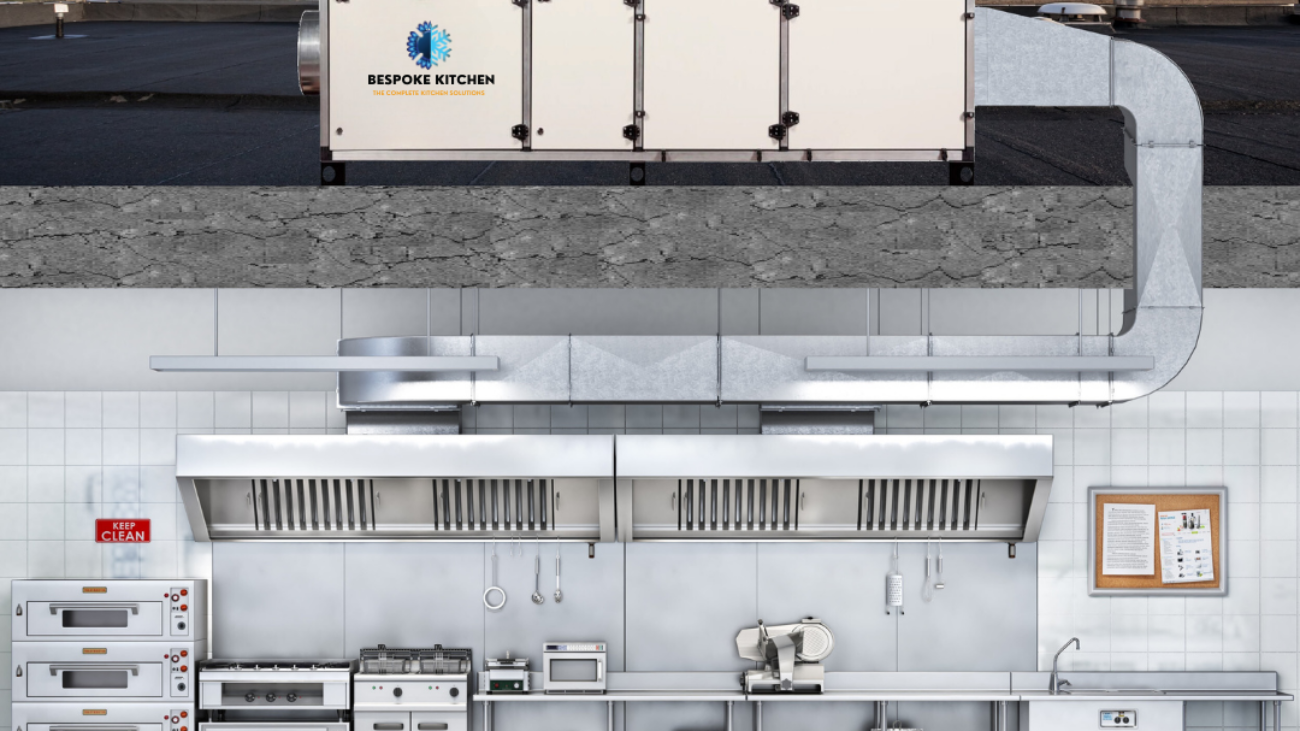Introduction
Kitchen Ecology Units (KEUs), also known as Pollution Control Units (PCUs), are essential installations in commercial kitchens aimed at filtering and managing exhaust emissions. These units are critical in removing smoke, grease particles, and controlling odors, thereby improving air quality and meeting regulatory standards. This guide will explore the various components, benefits, and operational considerations of KEUs, providing a thorough understanding for those in the food service and hospitality industries.

The Importance of KEUs
Commercial kitchens in hotels, restaurants, hospitals, and food industries generate significant amounts of smoke, grease, and odors. Without proper filtration, these emissions can pose health risks, damage equipment, and lead to regulatory non-compliance. KEUs address these issues by ensuring that the exhaust air is clean and odor-free, thus protecting both the environment and the facility’s reputation.
Components of a Kitchen Ecology Unit
1. **Electrostatic Precipitator (ESP)**
– **Function**: Removes fine particles of smoke and grease from the exhaust stream.
– **Operation**: Utilizes an electrical charge to capture particles on collection plates.
– **Benefits**: High efficiency and low operational cost.
2. **Metal Filters and Grease Traps**
– **Function**: Capture larger grease particles before they reach the ESP.
– **Operation**: Acts as a pre-filter, extending the life and efficiency of the ESP.
– **Benefits**: Reduces maintenance needs and enhances overall filtration efficiency.
3. Activated Carbon Filters
– Function: Control and eliminate odors from the kitchen exhaust.
– Operation: Adsorbs odor-causing molecules onto activated carbon surfaces.
– Benefits: Essential for maintaining a pleasant environment in and around the kitchen.
4. Ozone Systems
– Function: Further aids in odor control.
– Operation: Generates ozone, which reacts with and neutralizes odor molecules.
– Benefits: Provides a comprehensive solution for odor management, especially in challenging environments like seafood and BBQ restaurants.
Benefits of Implementing KEUs
1. Improved Air Quality
– Reduces smoke and grease in the exhaust, leading to cleaner indoor and outdoor air.
– Essential for compliance with health and safety regulations.
2. Odor Control
– Prevents food odors from affecting nearby areas, which is crucial in high-density settings like shopping malls and hotels.
– Enhances customer satisfaction by ensuring a pleasant dining experience.
3. Energy Efficiency and Cost Savings
– By maintaining clean exhaust systems, KEUs reduce the need for frequent maintenance and replacement of exhaust fans and ductwork.
– Contributes to energy savings by improving the efficiency of ventilation systems.
4. Regulatory Compliance
– Helps businesses meet local and national environmental standards.
– Reduces the risk of fines and shutdowns due to non-compliance.
Operational Considerations
1. Maintenance and Cleaning
– Regular maintenance is essential to ensure the efficiency and longevity of KEUs.
– Includes cleaning or replacing filters and servicing the ESP and ozone systems.
2. Installation and Space Requirements
– KEUs require adequate space for installation and operation.
– Proper planning and design are crucial to integrate these units into existing kitchen ventilation systems.
3. Cost and Budgeting
– Initial investment in KEUs can be significant, but the long-term benefits in terms of energy savings, reduced maintenance, and regulatory compliance justify the cost.
– Budgeting for ongoing maintenance is also necessary to ensure continuous operation.
Case Studies and Examples
1. Hotels
– In luxury hotels, maintaining a clean and odor-free environment is paramount. KEUs prevent kitchen odors from permeating guest rooms and common areas, ensuring a high-quality experience for guests.
2. Restaurants
– For restaurants located in urban centers or within food courts, KEUs help in managing smoke and odors, which can otherwise lead to complaints from neighbors and customers.
3. Hospitals
– In healthcare settings, air quality is critical. KEUs ensure that kitchen emissions do not compromise the sterile environment of the hospital.
Conclusion
Kitchen Ecology Units are indispensable for modern commercial kitchens, offering a range of benefits from improved air quality and odor control to regulatory compliance and cost savings. By investing in KEUs, businesses can ensure a safer, more efficient, and environmentally friendly operation, ultimately enhancing the overall customer experience and protecting their reputation.
Technological Advances
Recent advancements in KEU technology have further improved their efficiency and effectiveness. Innovations such as automated cleaning systems, real-time monitoring, and advanced filtration materials are making KEUs more user-friendly and reliable.
Future Trends
The future of KEUs lies in further integration with smart building systems. The ability to monitor and control KEUs remotely, combined with data analytics, will enable more proactive maintenance and optimization, ensuring peak performance and compliance.
Industry Standards and Certifications
Understanding the industry standards and certifications for KEUs can help businesses make informed decisions. Certifications from organizations like UL (Underwriters Laboratories) and compliance with standards such as ASHRAE (American Society of Heating, Refrigerating, and Air-Conditioning Engineers) are indicators of a unit’s reliability and efficiency.

